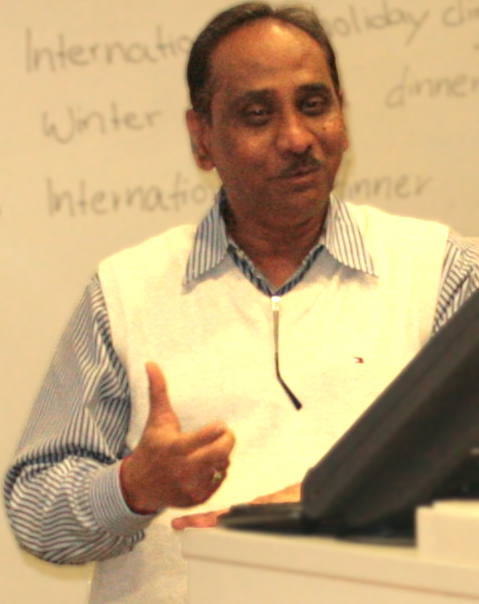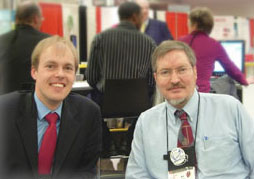 In this Podcast we will talk about culture-shock, cultural differences and also re-entry shock which expats can experience when they return to their home country after some time. Continue reading “Absolutely Intercultural 210 +++ Cultural Diversity +++ Culture Shock +++Re-entry Shock”
In this Podcast we will talk about culture-shock, cultural differences and also re-entry shock which expats can experience when they return to their home country after some time. Continue reading “Absolutely Intercultural 210 +++ Cultural Diversity +++ Culture Shock +++Re-entry Shock”
Tag: re-entry shock
absolutely intercultural 95 +++ re-entry shock +++ Kyle Hickman +++ Alice Wo +++ Joachim Birzele +++

Today our focus will be on a re-entry shock or reverse culture shock. When people stay abroad for a long period of time they often experience a kind of shock or depression after they come back to their home countries. For our first category “absolutely integrated”, I had Kyle Hickman in the studio. You may remember him from shows 87 and 91. This time he told me how difficult it can be to adjust to the German culture even if your whole family has a German background.
absolutely integrated
Do you remember Kyle Hickmann, the American student who did an internship at the Frankfurter Allgemeine Zeitung? We had interviewed him about his experience coming from the warm California to the cold country Germany. The third person in our round is Professor Dr. Joachim Birzele, a lecturer from the RheinAhrCampus, Remagen, who did a research tour around various universities in the US and in Canada. During his trip he was very impressed by the warm welcome he received everywhere and by the fact that his overseas colleagues did not hesitate to invite him to their homes straight away without even knowing him. They also passed him on to fellow-researchers by giving him their addresses and recommending contact. This made academic networking much easier for Joachim. You may remember that in my last show I talked about so-called “coconut people” and “peach people”? Well, today we will meet this analogy again and in our category “absolutely integrated” Kyle and Joachim immediately agreed that these two types of people behave very differently. Kyle suggested that Americans may be more comfortable combining business with friendship.
absolutely unprepared
Those who have lived abroad tell us that it is hard to adjust to a new culture because of little differences in spontaneous behavior – but how can it be difficult to go back to your own culture afterwards?
Imagine you leave your hometown, your work place or your university for a year and when you come back and you want to share all your new experiences with your friends – you notice that people are not quite as interested in your stories as you expected, or even worse, people did not even notice that you were away for a whole year?
Alice Wo is an Intercultural trainer who offers courses for students who face this situation after coming back from extended periods abroad. She helps them with the re-entry into their own culture and surroundings. Most people are prepared for a culture shock when they go out to a foreign country. But few are prepared for a similar shock when they come back home. When you spend a year in a different culture, you may adopt some customs that are unusual for your own home country. This readjustment process to the primary culture can affect people psychologically and even physically especially when they are unprepared for this.
absolutely open
People do, as a general rule, quickly adapt to their own culture again – but maybe if they were a little better prepared for this they would be less shocked or depressed upon their arrival home. After some stays in the US and in England I sometimes feel that the friendly openness is something which I miss when I get back home. I was in Florida over Christmas, where I certainly met a typical “peach-person”. We were waiting for a guided tour, my wife and I were standing around and suddenly a lady came to join the group of about 15 people. And instead of also standing a bit at the side and pretending the others were not there, she came straight to us, stretched out her hand and said: “Hi, my name is Linda”. Actually, we first thought she must be the guide but then she stayed with us and made small talk until the tour guide arrived. We were really surprised how quickly this networking machine enclosed us in her circle of friends and we soon discussed intimate topics such as “how much do you earn” which I would never even discuss with my close friends back home.
The next show will be coming to you on 13 November from Anne Fox in Denmark.
So long…stay tuned!
The host of this show is: Dr. Laurent Borgmann
Editor: Dino Nogarole
‘absolutely intercultural!’ 13 +++ The Scholar Ship +++ Re-entry shocks +++ Culture as a mosaic +++
An intercultural university on a boat, how to deal with re-entry shocks and a great metaphor for culture.
!!! If you had any problems downloading this episode with iTunes or another podcatcher, please try again now. I made a mistake by including the wrong file in the feed, but I’ve fixed the problem. I apologize for the inconvenience and hope, you’ll enjoy the show !!!

Welcome to episode 13, which comes to you in parts from the NAFSA conference in Canada.
Curious things are happening around us and our show and we seem to become rather famous – or should we say infamous?
We had a rather serious research article of no less than 11 pages written about our first show by Fred Dervin from the Department of French Studies at the University of Turku in Finland.
Paul Braddock has developed a lesson plan, also for our first show. This is absolutely amazing! He has taken our show, transcribed it and developed several exercises, including listening comprehension and some games. Paul, thank you so much! We are really honored.
And another amazing thing has happened. Two good friends of us have produced a show for us. Thomas Berger and Theo Schenk both work for the intstitute inter.research in Fulda, and Thomas recently went to the NAFSA conference in Canada, where he recorded several absolutely fantastic interviews with:
- Bill Nolting, head of the NAFSA Education Abroad Subcommittee, about his experiences as a student in Germany
- Dr. Josef Orlander, captain of the The Scholar Ship, which is an intercultural university aboard a cruiseliner
- Alice Wu, an intercultural consultant and teacher at Cornell University, about re-entry shocks, and how to avoid them.
- And Charles Hodgson from Podictionary explains how the word “ciao” came into the English language.
We are also trying to answer one of our regular questions: What is culture? So let’s listen to the ideas of Rhiannon and Victor, two students from Canada and the USA who took part in the Hessen Global Summer Internship Program organized by the institute inter.research e.V. and the Universites of Hessen/Germany.
You see, the show is packed with interesting reports, and we really hope you will enjoy listening to it.
And speaking about conferences…Laurent, Thomas and other project partners from Sweden and Spain will be at the EAIE conference in Basel, Switzerland from 12th until 15th of September. So if you happen to be there, then why don’t you join our roundtable session in intercultural preparation of internships abroad at the EAIE on the 15th of September.
The next episode will come to you from Anne Fox in Denmark on the 22nd of September.
The Hosts of this show are: Dr. Laurent Borgmann, Thomas Berger & Theo Schenk
Edited by: Karsten Kneese & Theo Schenk
The music in this show comes from Derek K. Miller of Penmachine.com
